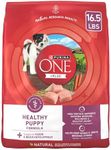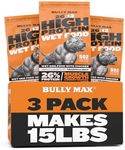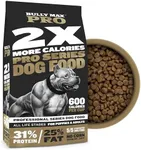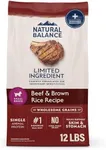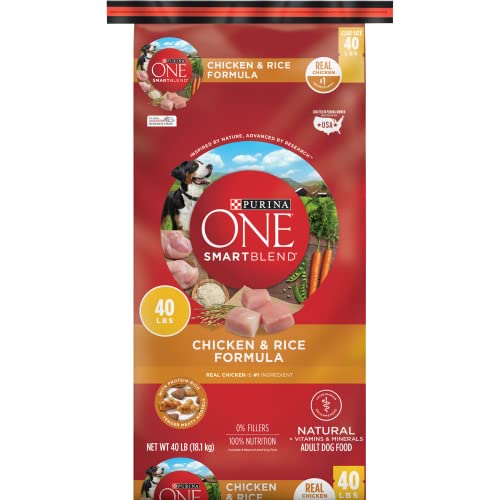Buying Guide for the Best Puppy Dog Foods
Choosing the right puppy dog food is crucial for the healthy growth and development of your furry friend. Puppies have different nutritional needs compared to adult dogs, so it's important to select a food that meets those specific requirements. When picking the best puppy food, consider factors such as the breed, size, and any specific health concerns your puppy may have. Here are some key specifications to help you make an informed decision.Nutritional ContentNutritional content refers to the balance of proteins, fats, carbohydrates, vitamins, and minerals in the dog food. This is important because puppies need a higher amount of protein and fat to support their rapid growth and development. Look for foods that have a high protein content (around 22-32%) and fat content (around 10-25%). If your puppy is very active or a larger breed, they may need more protein and fat. Always check the label for a statement from the Association of American Feed Control Officials (AAFCO) to ensure the food meets the nutritional requirements for growth.
IngredientsThe ingredients list tells you what is actually in the dog food. High-quality puppy foods will list meat as the first ingredient, as it is a primary source of protein. Avoid foods with fillers like corn, soy, and wheat, as these can be harder for puppies to digest and may cause allergies. Look for whole foods and natural ingredients, such as real meat, vegetables, and fruits. If your puppy has specific dietary needs or allergies, choose a food that caters to those requirements.
Kibble SizeKibble size refers to the size of the dry dog food pieces. This is important because puppies, especially small breeds, have smaller mouths and may struggle with larger kibble. Choose a food with smaller kibble pieces for small breed puppies to make it easier for them to chew and digest. Larger breed puppies can handle bigger kibble, but it should still be appropriately sized for their age and mouth size.
Life StageLife stage indicates whether the food is formulated for puppies, adults, or senior dogs. Puppy food is specifically designed to meet the nutritional needs of growing dogs. It contains higher levels of protein, fat, and certain vitamins and minerals compared to adult dog food. Always choose a food labeled for puppies or 'all life stages' to ensure your puppy gets the right nutrients for their growth.
Breed-Specific FormulasBreed-specific formulas are dog foods tailored to the unique needs of certain breeds. These formulas take into account the typical size, activity level, and common health issues of the breed. For example, large breed puppies may benefit from a formula that supports joint health, while small breed puppies may need a higher calorie content. If your puppy is a purebred, consider a breed-specific formula to address their specific needs.
Wet vs. Dry FoodWet food is canned food that contains higher moisture content, while dry food is kibble. Wet food can be easier for puppies to chew and can help keep them hydrated, but it can be more expensive and less convenient to store. Dry food is more convenient, helps keep teeth clean, and is generally more affordable. Some pet owners choose to mix wet and dry food to provide a balance of benefits. Consider your puppy's preferences, dental health, and your convenience when choosing between wet and dry food.
Special Dietary NeedsSpecial dietary needs refer to any specific health concerns or dietary restrictions your puppy may have, such as food allergies, sensitivities, or medical conditions. If your puppy has any of these issues, look for foods that are formulated to address them, such as grain-free, hypoallergenic, or limited ingredient diets. Consult with your veterinarian to determine the best food for your puppy's special dietary needs.








